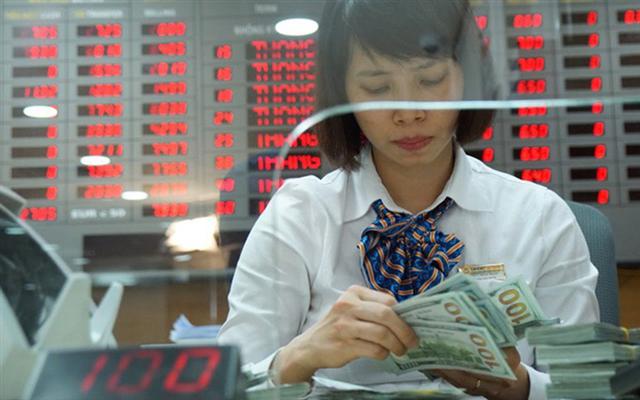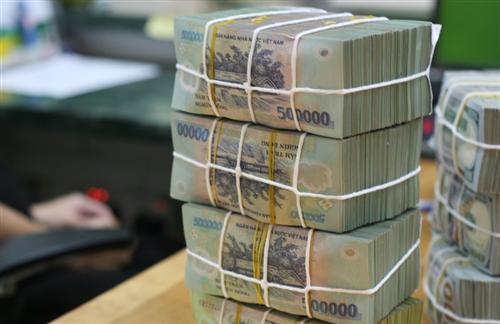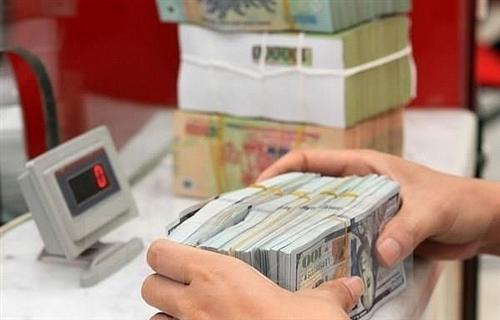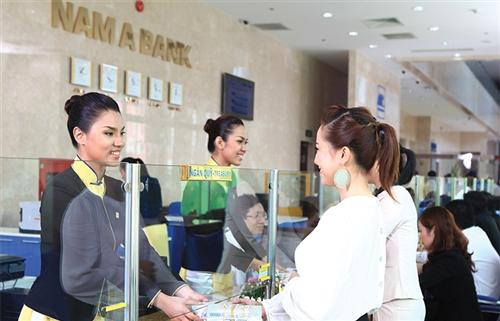Vietnamese financial market faces bigger challenges in 2020
Vietnamese financial market faces bigger challenges in 2020
It is projected that FDI and remittance inflows to Vietnam would also weaken this year due to the global economic slowdown, providing less support to VND.
Rising global uncertainties are putting the Vietnamese financial market, especially securities and currency, under major challenges this year.

Pressure on the local exchange rate is forecast to be bigger this year.
|
In the currency market, after being relatively stable last year, the foreign exchange rate of the Vietnamese dong (VND) against the US dollar is forecast to be under greater pressure this year due to both internal and external headwinds.
According to finance expert Nguyen Tri Hieu, pressure on the exchange rate would be bigger this year as a greenback supply decline in the domestic market is forecast, driven by weaker FDI inflows and exports.
Due to a decline in global demand, Vietnam's exports in 2020 may not be as positive as last year and the government even forecasts a trade deficit of about 3% of export turnover this year, Hieu explained, adding that Vietnam’s imports are also likely to rise over the coming months, outpacing exports and putting pressure on VND.
Besides, he said, it is projected that FDI and remittance inflows to Vietnam would also weaken this year due to the global economic slowdown, providing less support to VND.
Vietnam received US$38 billion in total registered investment capital last year, up 7% from US$35.5 billion in 2018. The processing and manufacturing sector continued to attract the bulk of FDI at US$24.6 billion, which accounted for 64.6% of investment capital in 2019.However, it is forecast that infrastructure and human capital bottlenecks will decrease FDI to the manufacturing and processing sector this year.
Higher inflation would also put more pressure on the exchange rate, Hieu said, forecasting the impacts will cause VND to depreciate by between 2-3% this year.
VND remained relatively stable against the dollar last year, with the State Bank of Vietnam’s reference exchange rate up some 1.45% against the end of the previous year.
Notably, greater difficulties have been seen in the domestic stock market due to the worldwide spread of the Covid-19 epidemic, which caused the benchmark VN-Index to plunge a total of 5.45% last week to stay at 882.19 points.
By the end of the first two months of this year, foreign investors were net sellers on the Vietnamese stock exchanges with a total value of more than VND1.17 trillion (US$50.87 million).
Experts forecast that the domestic stock market would continue experiencing strong corrections, while the market bottom cannot be determined until there are clear signs of effective control over the Covid-19 epidemic.
Hoang Thach Lan, head of Personal Banking Division at Viet Dragon Securities Company, said it is difficult for the VN-Index to move in a positive way during this period. The index may even decrease further.
Supporting measures
In a move to encourage investors to increase their activity on the Vietnamese securities market amid the spread of Covid-19 and its impact on the global economy, Nguyen Thanh Ky, general secretary of the Vietnam Association of Securities Businesses, said the association would propose market regulators reduce trading taxes for investors.
The association will suggest the Hanoi and Ho Chi Minh stock exchanges cut trading fees for brokerage firms, then the companies will consider doing the same for investors, Ky said, adding that it will also propose the National Assembly consider tax cuts for the securities sector so that the market may flourish this year.
Sharing the same view, Nhu Dinh Hoa, general director of Bao Viet Securities Company, said that the government should think about the supporting policies as it can encourage investors to stay with the Vietnamese market amid the volatility of the global market and economy.
Industry insiders said the current market condition is pretty harsh and it would be difficult for companies to increase the number of new active investors as many active investors have closed their accounts while some others are waiting for more signals to close theirs.






















